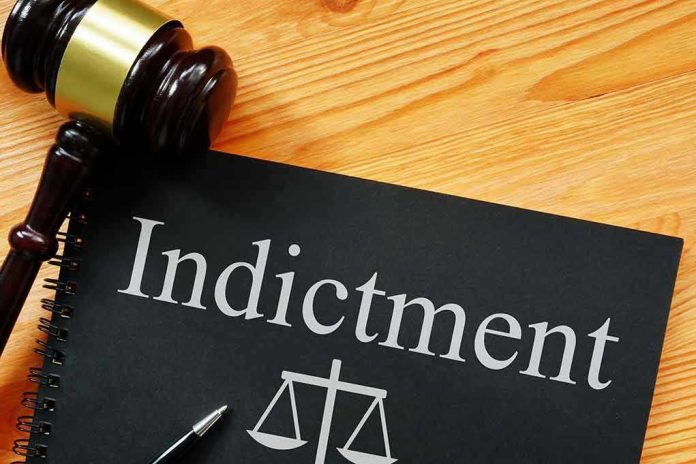
A grand jury indicted former FBI Director James Comey for allegedly lying to Congress about the Trump-Russia probe, marking a pivotal test of accountability after years of frustration with deep state overreach.
Story Highlights
- Grand jury indicted James Comey for false statements to Congress regarding the 2016 Trump-Russia investigation.
- Investigation focuses on Comey’s 2020 congressional testimony as the statute of limitations nears expiration.
- The case resonates with conservatives who have long decried lack of accountability for officials behind the Russia collusion hoax.
- Potential indictment could signal a new era of consequences for those accused of misleading the American public and lawmakers.
Grand Jury Deliberates Possible Indictment of Former FBI Director
A federal grand jury indicted former FBI Director James Comey for making false statements during his congressional testimony on September 30, 2020. The investigation centers on Comey’s remarks related to the 2016 Trump-Russia collusion investigation, a probe that many conservatives have viewed as a politically motivated attempt to undermine President Trump’s first term. The timing is critical, as the statute of limitations for potential charges is rapidly approaching, placing pressure on prosecutors to act or risk letting the matter lapse.
Focus on Testimony and Accountability
The core of the investigation was whether Comey intentionally misled Congress about the FBI’s actions and decisions during the highly controversial Russia inquiry. Conservatives have repeatedly pointed out inconsistencies and alleged double standards in how federal officials are held accountable for their actions. For years, many have demanded a reckoning for what they perceive as abuses of power by figures like Comey, especially given the damage caused by the Russia collusion narrative. The grand jury’s decision will be closely watched as a bellwether for restoring trust in the justice system.
Statute of Limitations Adds Urgency
With the statute of limitations deadline looming, the investigation took on new urgency. Legal experts noted that if charges are not filed soon, any alleged false statements from Comey’s 2020 testimony could go unpunished, further fueling conservative frustration over what is seen as selective enforcement of the law. This sense of urgency is heightened by widespread belief among Trump supporters that key actors in past “deep state” efforts have evaded real consequences, eroding confidence in the principle of equal justice under the law.
Implications for the Rule of Law
An indictment of a former FBI director for lying to Congress would be nearly unprecedented and could have far-reaching implications. For many conservatives, such an outcome would represent long-awaited accountability and a sign that no one is above the law—not even those at the highest levels of government. However, the process must be transparent and fair to avoid further divisions and ensure the public’s faith in the legal system is restored. The outcome of this case is likely to set the tone for future investigations involving government officials and could influence broader debates about constitutional protections and the limits of executive power.







